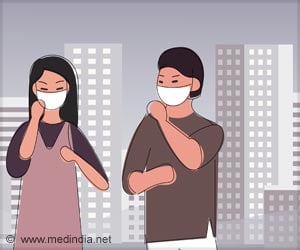BAME health-care workers were at an especially high risk of SARS-CoV-2 infection, with at least a fivefold increased risk of infection compared with the non-Hispanic white general community, said new study.

‘BAME health-care workers were at an especially high risk of SARS-CoV-2 infection, with at least a fivefold increased risk of infection compared with the non-Hispanic white general community,’





Professor Sebastien Ourselin, senior author from King's College London said: "The findings of our study have tremendous impact for healthcare workers and hospitals. The data is clear in revealing that there is still an elevated risk of SARS-CoV-2 infection despite availability of PPE. "In particular we note that that the BAME community experience elevated risk of infection and in some cases lack access to adequate PPE, or frequently reuse equipment."
Researchers say their study not only shows the importance of adequate availability and use of PPE, but also the crucial need for additional strategies to protect healthcare workers, such as ensuring correct application and removal of PPE and avoiding reuse which was associated with increased risk.
Differences were also noted in PPE adequacy according to race and ethnicity, with non- Hispanic white health-care workers more frequently reporting reuse of or inadequate access to PPE, even after adjusting for exposure to patients with COVID-19.
Joint first author Dr Mark Graham from King's College London said: "The work is important in the context of the widely reported higher death rates amongst healthcare workers from BAME backgrounds. Hopefully a better understanding of the factors contributing to these disparities will inform efforts to better protect workers."
Advertisement
"Additional protective strategies are equally as important, such as implementing social distancing among healthcare staff. Stricter protocols for socialising among healthcare staff also need to be considered."
Advertisement















